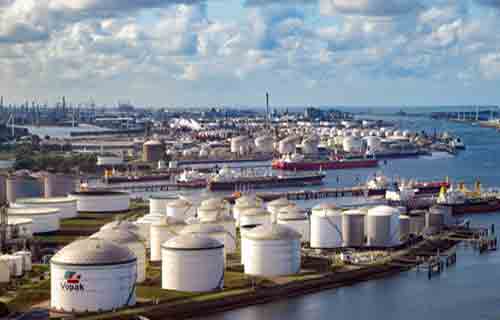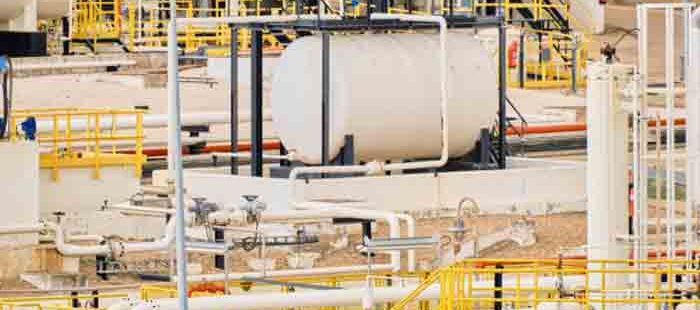The process of oil extraction from the earth has been around for centuries, and today it’s an industry that produces billions of barrels of crude oil annually. However, some parts of the process can be less than ideal, like when lines become frozen due to certain environmental conditions. Thankfully, there are certain chemicals that can help unfreeze these lines and get the oil flowing again. In this article, we’ll explore what chemical will unfreeze lines in oilfields.
Types of Chemicals Used to Unfreeze Lines in Oilfields

Chemicals used to unfreeze lines in oilfields come in many different forms and varieties. Generally speaking, they all work by breaking down or dissolving ice crystals that build up on pipes and other components over time. Depending on the specific situation, one type or another may be more suitable for use. Some popular types include glycols (such as ethylene glycol), methanol/methanol mixtures (sometimes used with glycol), isopropyl alcohol/isopropanol mixtures, surfactants (such as sodium lauryl sulfate), and other specialty chemicals tailored for particular needs. Once you really need to find out extra information on oilfield, you must check out the post right here irooildrilling site.
Benefits of Using Chemical Solutions for Unfreezing Lines
Using chemical solutions for unfreezing lines offers several benefits over mechanical approaches such as using hot water or steam systems. First, chemical solutions tend to be faster acting than mechanical approaches which means they don’t take as much time to get a line unthawed. Second, chemical solutions are typically more efficient since they don’t put as much stress on a system or require additional labor-intensive steps like cleaning off ice buildup after a line is unthawed with steam or hot water. Finally, chemical solutions are usually cost effective since they don’t require additional equipment or materials needed for mechanical approaches just the right solution will work.
Safety Precautions When Using Chemical Solutions
Before using any type of chemical solution to unfreeze lines in an oilfield environment it’s important to take some safety precautions to protect yourself and your equipment from harm. It’s essential that you read all instructions carefully when handling chemicals so you understand how they should be used properly and safely. Also make sure you have protective gear such as gloves and goggles available in case any chemicals splatter during application or if there’s potential for inhalation risks due to fumes from certain types of chemicals used in high concentrations (like isopropyl alcohol). Additionally, if your equipment has been exposed to any type of corrosive materials always check it afterwards just to ensure everything is still functioning correctly before use.
How do I know which type of chemical is best suited for my needs?
It depends on what material your pipe or component are made out of and what kind of environmental conditions you’re dealing with (temperature, moisture levels etc.). Generally speaking though glycols, methanol/methanol mixtures (sometimes combined with glycol), isopropyl alcohol/isopropanol mixtures are widely used options depending on the specifics involved so consider those first before trying specialty chemicals tailored more towards particular needs.
Are there any special safety precautions I should take when using chemical solutions?
Yes, Always read all instructions carefully before handling chemicals and make sure you have protective gear such as gloves and goggles available in case any splatter during application or if there’s potential inhalation risks due to fumes from certain types of chemicals being used at high concentrations (like isopropyl alcohol). Additionally check your equipment afterwards just to make sure everything is still functioning correctly before use.
Conclusion:
Unfreezing lines in an oilfield environment requires a bit more thought than most processes thankfully though there are certain chemicals that can help break down ice crystals quickly and efficiently while offering other benefits like being cost effective compared to methods like steam or hot water systems that require additional equipment or materials. As long as proper safety precautions are taken when handling these chemicals then this process can be handled without any major issues so consider looking into what type will work best depending on your specific requirements before starting any project.
- How to Choose the Right Abrasive Tools and Supplies for Your Workshop? - September 28, 2024
- The Role of Sports Nutrition Supplement in Muscle Building - September 23, 2024
- The Evolution of Hydraulic CNC Press Brakes in China: From Traditional to High-Tech - September 4, 2024

